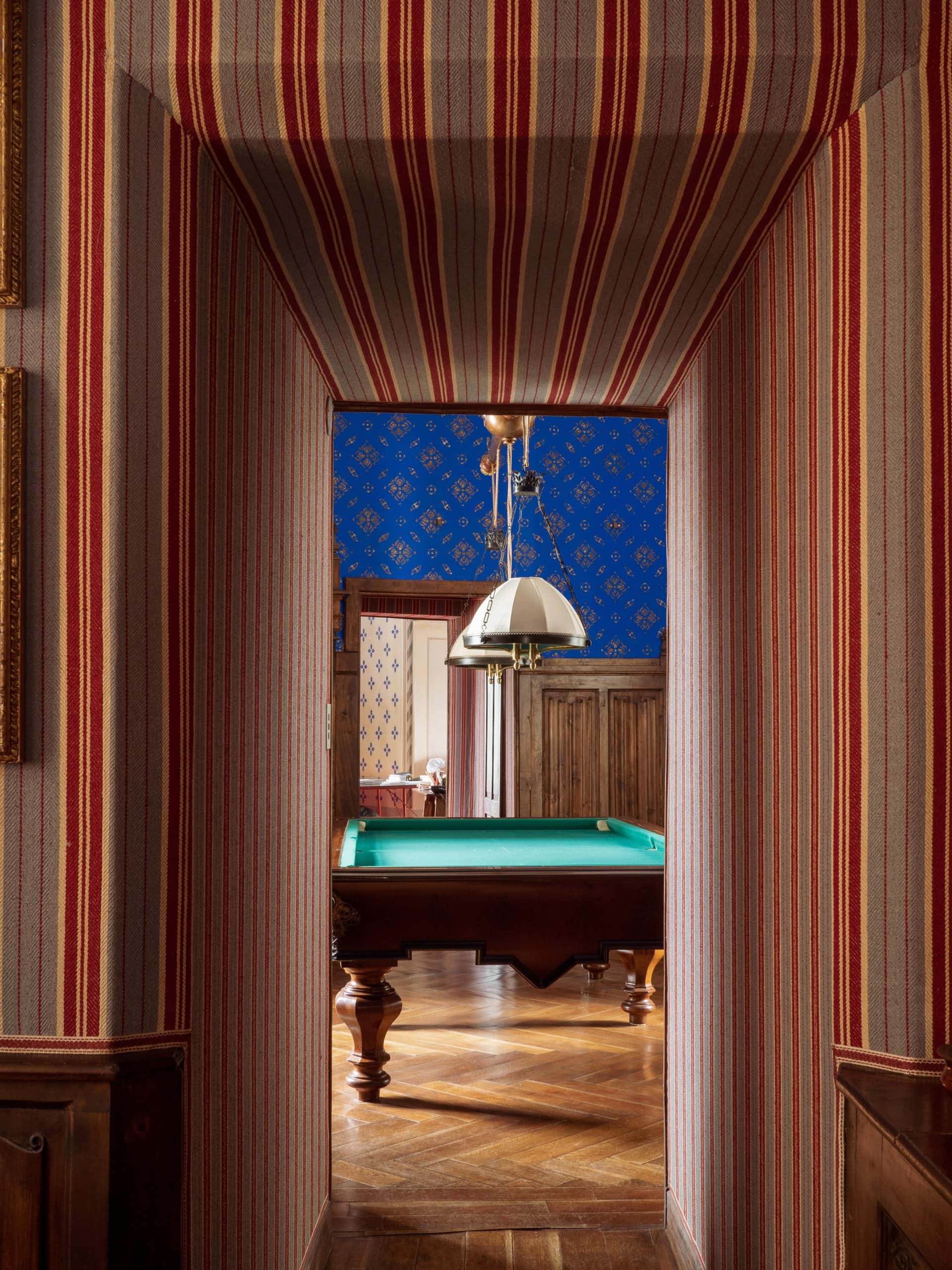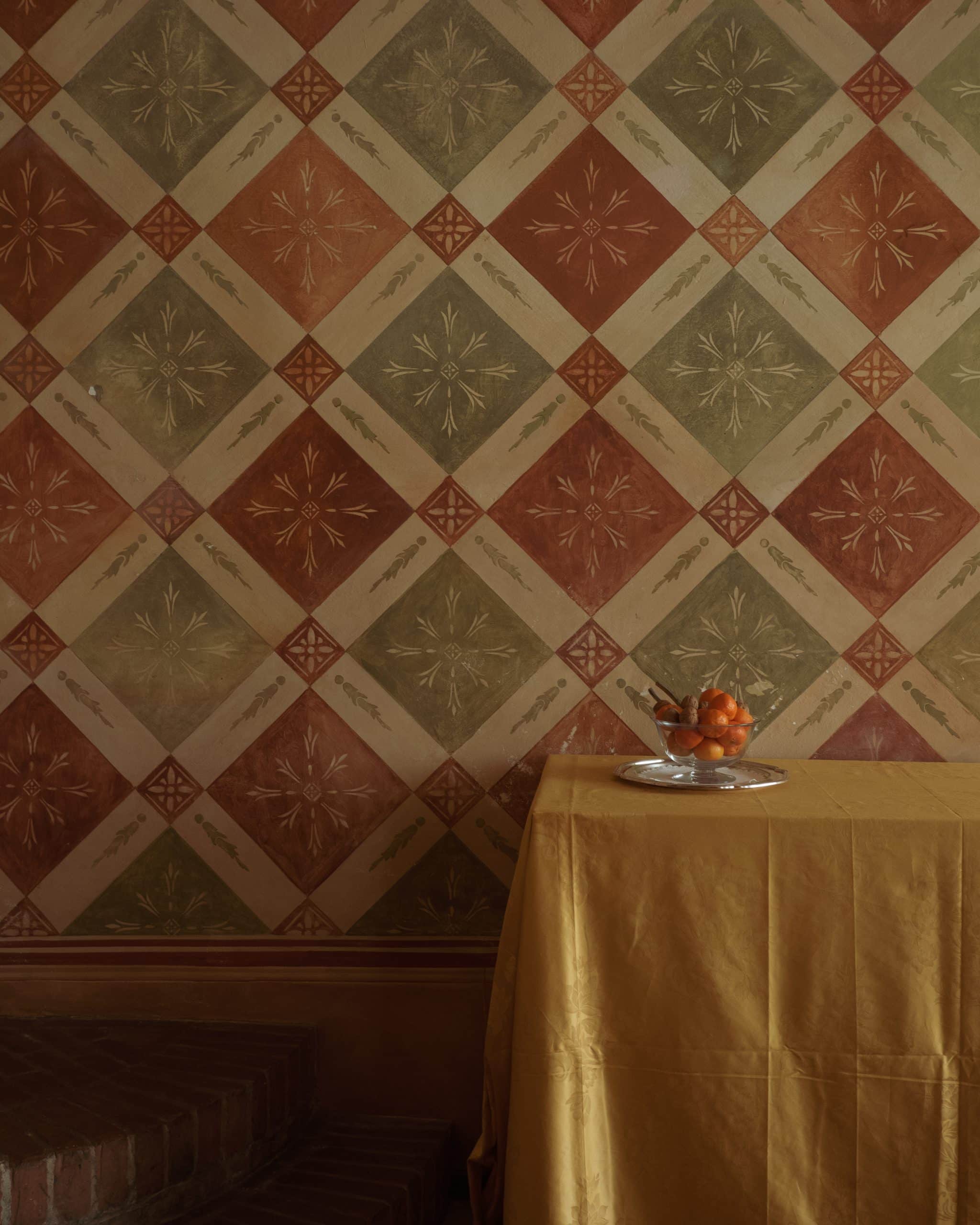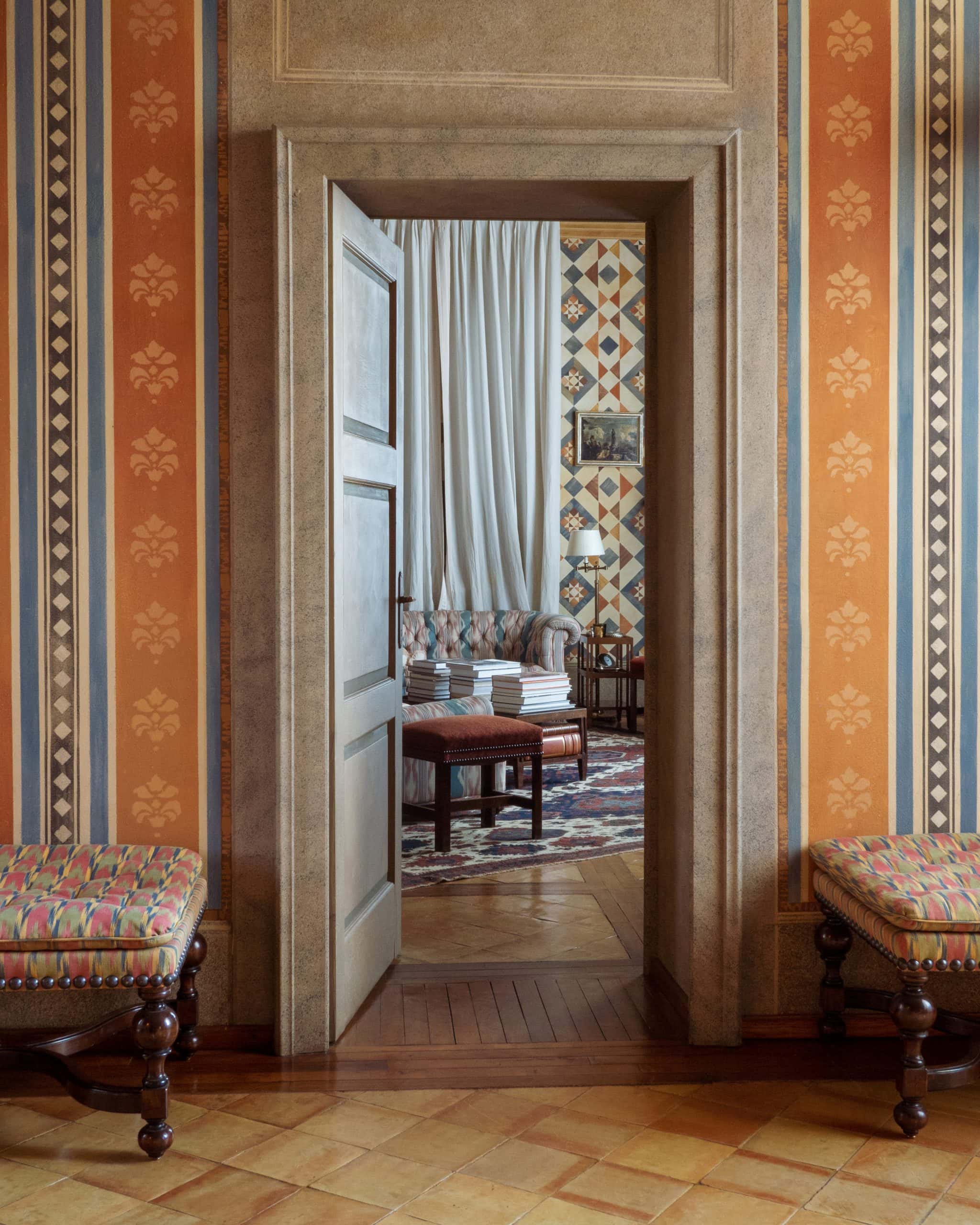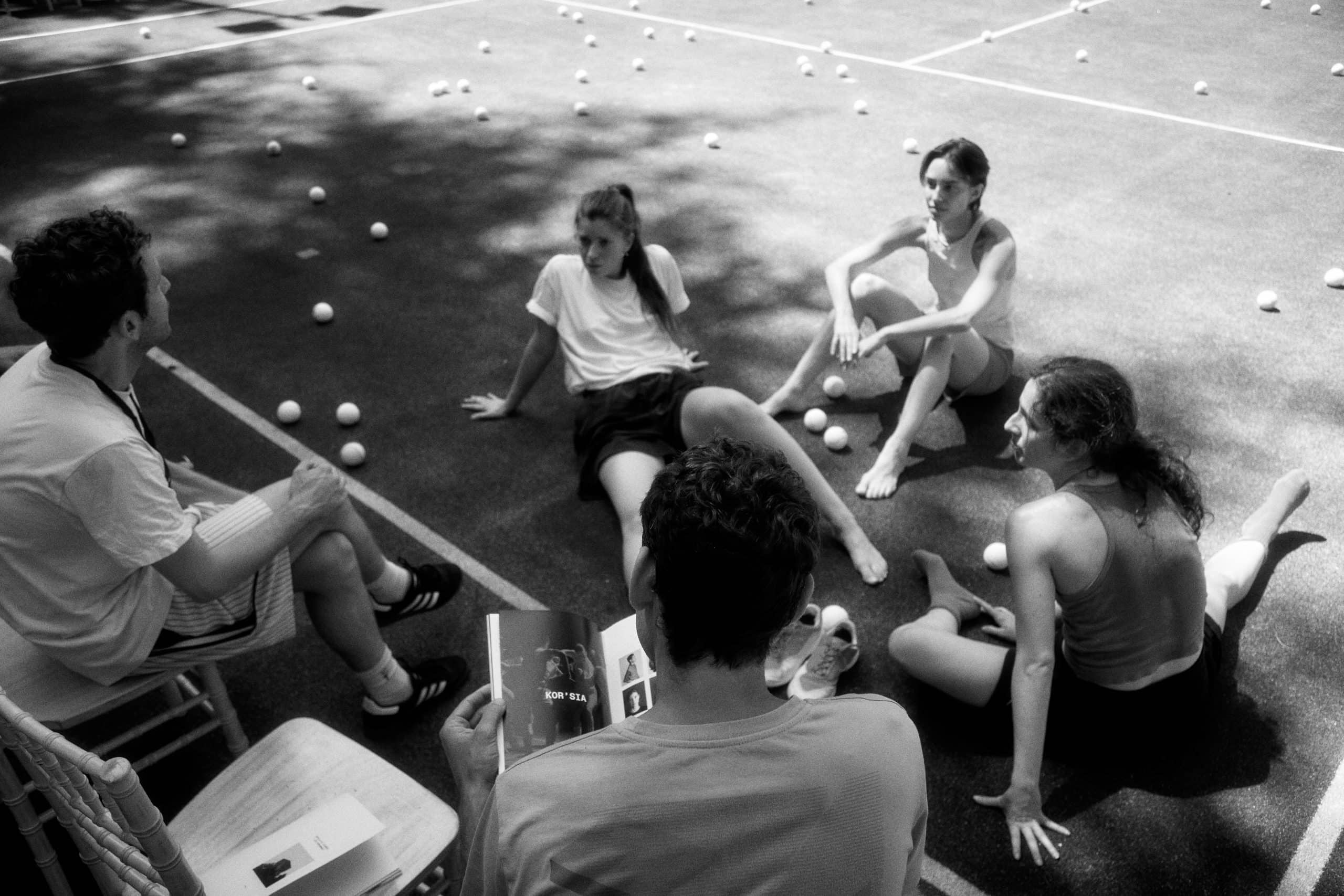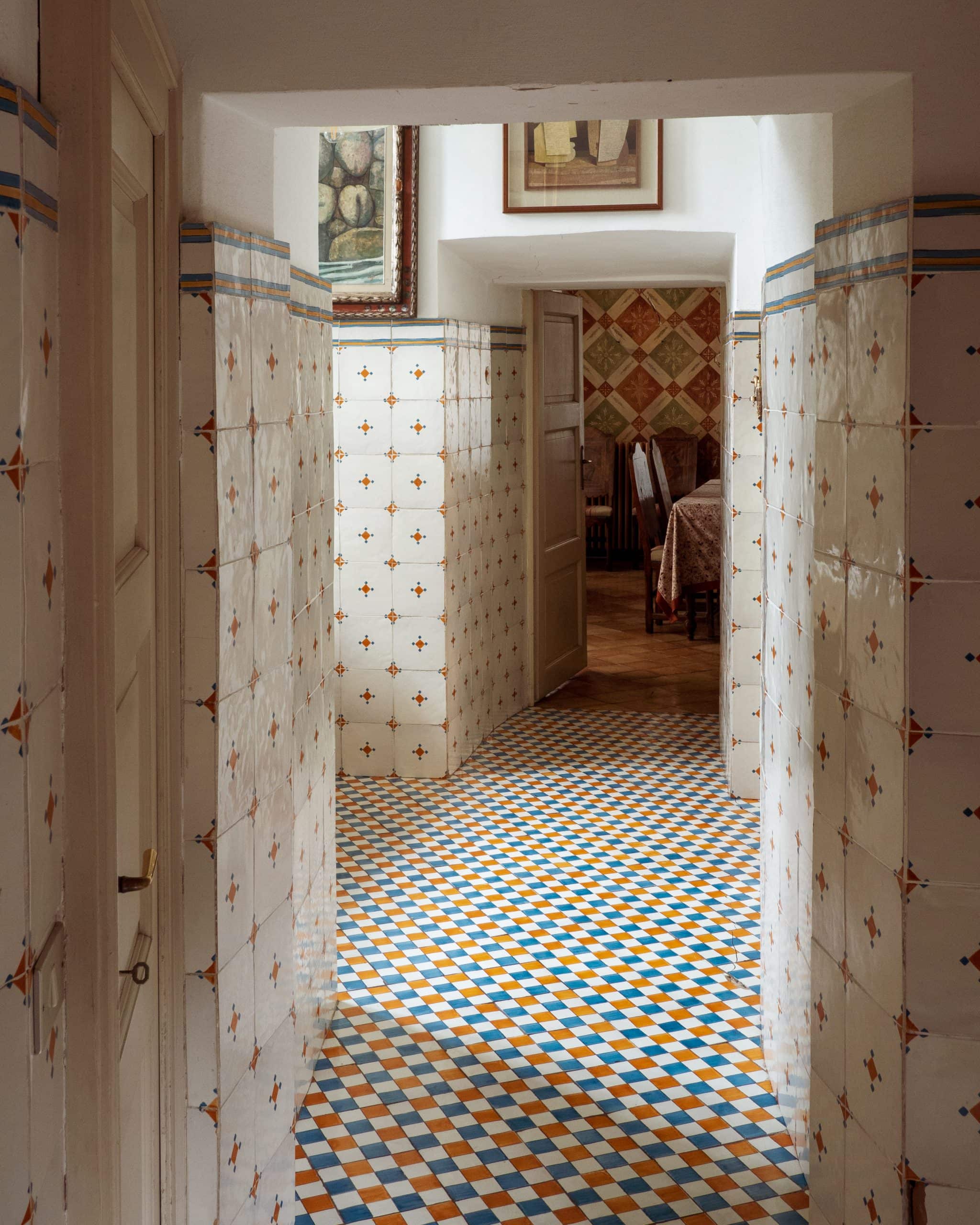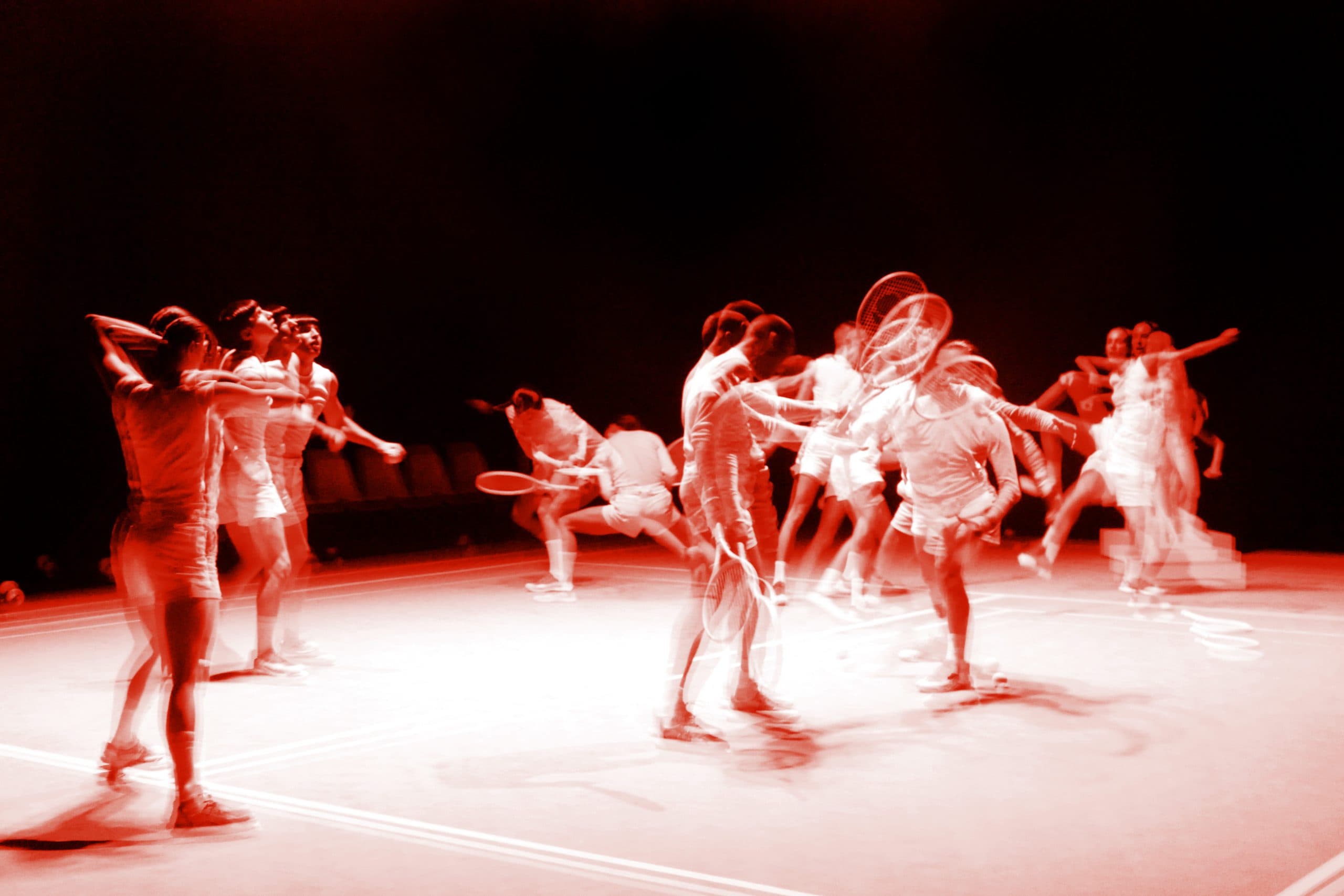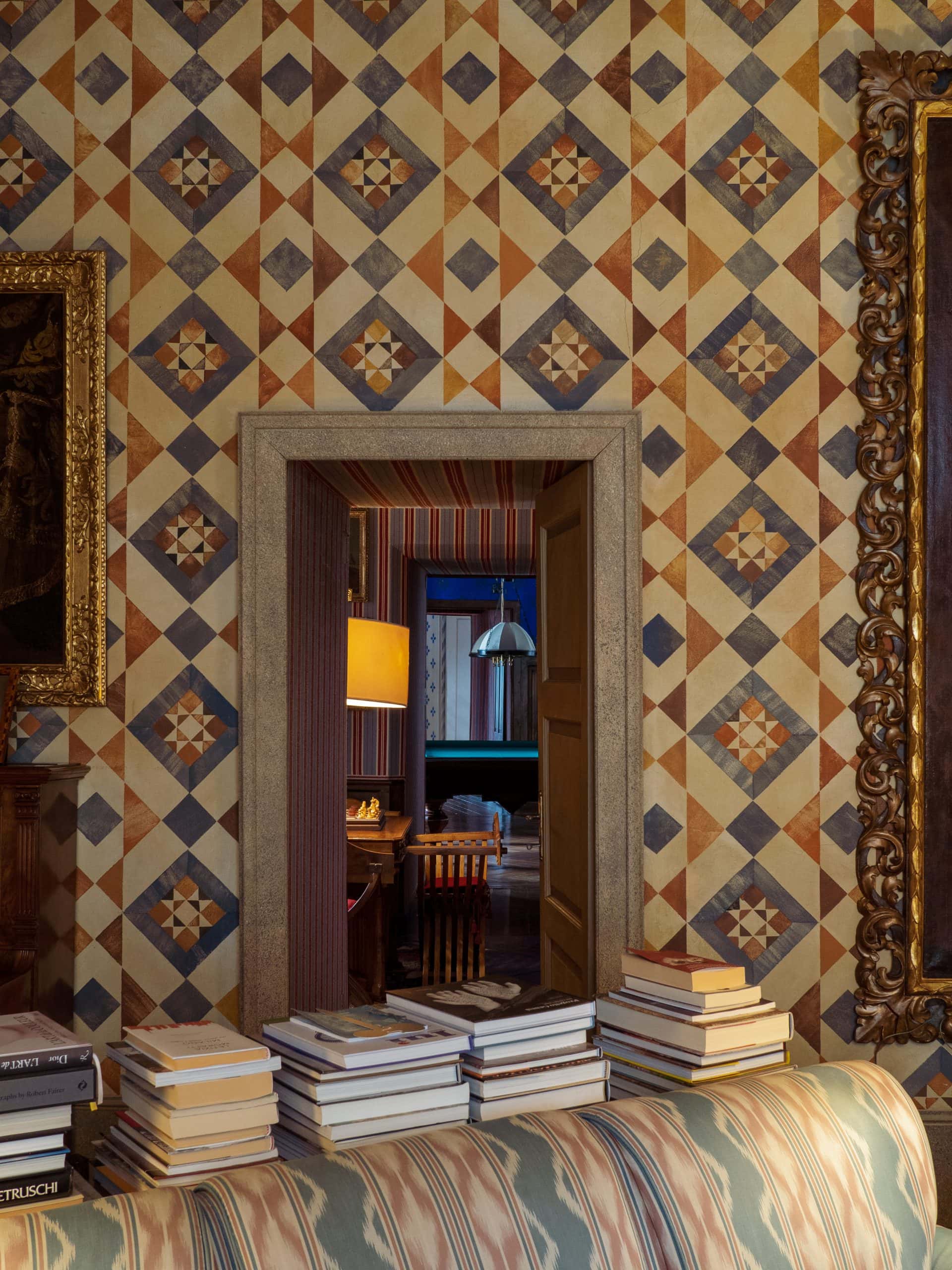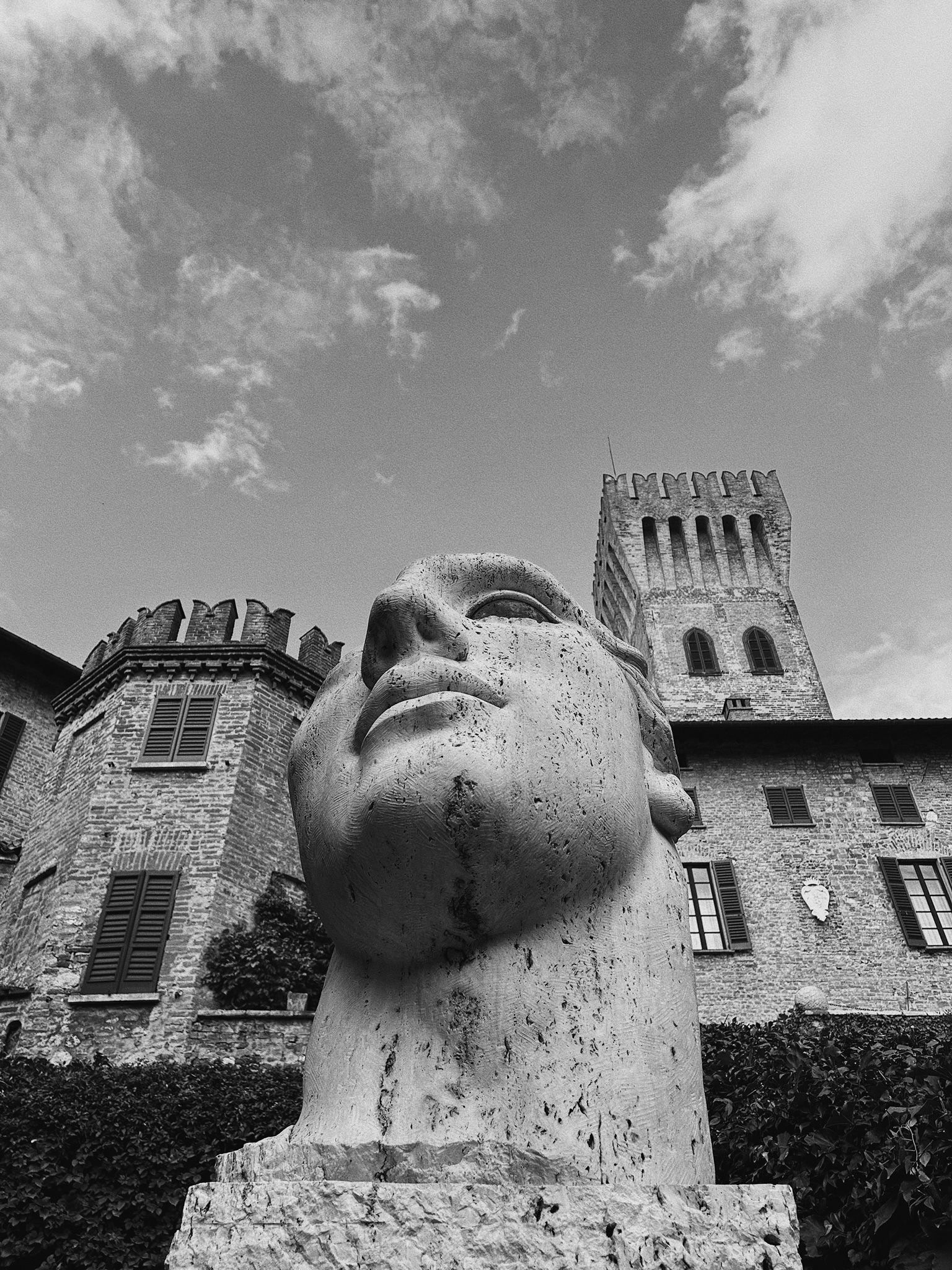Overlooking the hills of the Oltrepò Pavese, Castello di Cigognola returns as a stage for contemporary art with the new edition of Cigognola Live Performance 2025, curated by Émilie Fouilloux. A multidisciplinary festival that, year after year, confirms itself as a space for creation and reflection, where visual arts, music, and dance intertwine with the evocative power of the place. The 2025 edition revolves around the theme of play—understood as an ambivalent metaphor of freedom, rules, conflict, and resistance. A thread that runs through all performances, transforming the festival into a cultural observatory of the present.
A PLACE OF HISTORY, CULTURAL COMMITMENT AND WINE PRODUCTION
Castello di Cigognola is a place where eight centuries of history converge. Built in 1212 as a military stronghold overlooking the Scuropasso Valley, it was transformed in the 19th century by Don Carlo Arnaboldi-Gazzaniga into an elegant neo-Gothic residence. In the following decades, it became a meeting point for intellectuals such as Benedetto Croce, Eugenio Montale, Guido Piovene and Luigi Einaudi, thanks to the hospitality of Emilia Ajroldi di Robbiate, grandmother of Letizia Moratti.
In the early 1980s, a devastating fire damaged the castle. Letizia and Gian Marco Moratti entrusted its reconstruction to Renzo Mongiardino, the renowned master of historical décor, who signed its rebirth with a project that masterfully combined architectural quotations, scenic inventions, and artisanal excellence. The decorative intervention was carried out in collaboration with the artisan workshops of the San Patrignano community, long supported by the Moratti family.
In addition to its cultural and historical legacy, Castello di Cigognola is now a leading viticultural estate. Under the guidance of Gabriele Moratti, the estate spans 36 hectares cultivated using organic and precision viticulture practices. The focus is on Pinot Noir, prized for its excellent phenolic ripeness, ideal for producing high-end Metodo Classico sparkling wines such as Pas Dosé—an authentic expression of the territory. Oenological consultancy is entrusted to Federico Staderini and Nicolas Secondé, chef de cave in Ambonnay with deep roots in the Champagne tradition.
Though it remains a private residence, the Castle opens its doors on selected occasions, such as the FAI Autumn Days or curated wine tastings in its dedicated tasting room. Throughout the year, it also hosts cultural and philosophical initiatives of relevance, confirming its role as a crossroads between historical memory, artistic experimentation, and enological research.
THE CIGOGNOLA LIVE PERFORMANCE 2025
Alongside its wine production, Castello di Cigognola cultivates a profound cultural vocation, becoming a stage for encounters between art, thought and landscape—a continuous dialogue with contemporaneity and the territory that embraces it. Cigognola Live Performance is the annual art program envisioned by Émilie Fouilloux, former dancer of the Opéra de Paris and La Scala in Milan, and today artistic director of the castle’s creative initiatives. With an international background developed between Paris, New York and Milan, Émilie has shaped a multidisciplinary platform that intertwines different languages, from dance to music, art to philosophy.
“The festival was born from my love for dance, but also from the desire to share other forms of art in a place that has the power to transform those who pass through it,” says Émilie.
The theme of the 2025 edition is play, interpreted as a metaphor of confrontation, rules, and resistance. Behind its apparent lightness, play reflects the tensions of the present and becomes—through art—a tool to give form and meaning to these challenges. In this context, beauty does not console: it stimulates, provokes, opens up new imaginaries.
Pianist Giovanni Bertolazzi channels this tension in his performance dedicated to romantic music. Through the compositions of Chopin and Liszt, he explores conflict as a creative impulse, transforming pain and memory into shared and universal beauty.
“Music is a language that allows people to communicate through beauty—a beauty that expresses various human emotions, not all of which are beautiful. \[…] If we think of music created in tragic contexts, we still find a language of extraordinary beauty. We recognize its salvific function. Whether it expresses a personal or historical experience, there is always a sense of redemption in music.” – Giovanni Bertolazzi
The Kor’sia collective, directed by Mattia Russo and Antonio de Rosa, presents Igra, a choreographic performance set on a tennis court—symbol of regulated play and social competition. Inspired by the eponymous 1912 ballet by Vaslav Nijinsky, the work reflects on the duality between game and conflict, proposing a contemporary vision in which art becomes a space of emancipation and rewriting of the rules.
“For us, the arts—particularly the arts of movement, which are our domain—are the only forms that can transmit the human world: everything that has been created by our societies—tradition, society, culture—in a way that no other cognitive ability can achieve. These artistic forms survive beyond the societies that produced them, transcending what we call ideas, and providing individuals with access to their most intimate and spiritual journeys.
Therefore, our aim is to create artistic devices whose epicenter is the body, proposing a reflection on the possible gestation of individual and collective spaces, which can offer new access to ways of being and existing in the world through the living arts.” – Kor’sia
“Anyone can decide who they want to be, and in this moment, in this performance, through the match, we try to shed light on the ongoing difficulties in today’s society, in order to overcome them.” – Mattia Russo and Antonio de Rosa
Artist Grazia Toderi presents We Mark, an immersive installation that transforms the surface of a billiard table into a cosmic field, animated by luminous projections evoking the planet’s fragility and human responsibility. The game becomes a metaphor of memory, time, and transformation—an artwork that meditates on what we leave behind, both visible and invisible marks upon the world.
“We Mark is a project I’ve been working on for some time. It begins from the physical earth—material, fertile earth. Earth that is marked, trampled, used, displaced. […] As Calvino once said, ‘what we trace on the earth is reflected in the sky.’ For this reason, we must be mindful of our actions.” – Grazia Toderi
As in every edition, the event stands out for its unique format: an intimate cultural laboratory where art, dance, and music confront the pressing questions of our time through site-specific works and performances. The castle thus transforms into a creative observatory, where play becomes poetic gesture and act of freedom.
